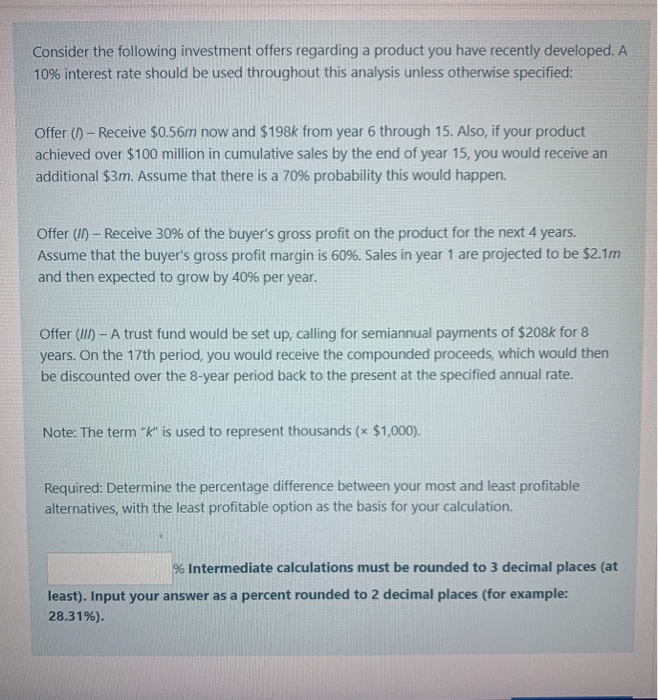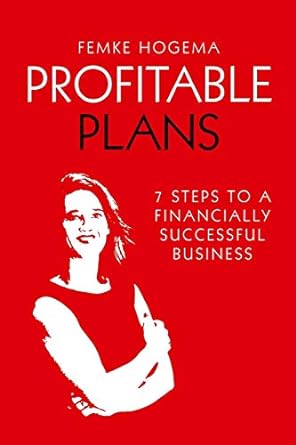Consider the following investment offers regarding a product you have recently developed. A 10% interest rate should be used throughout this analysis unless otherwise specified: Offer (1) - Receive $0.56m now and $198k from year 6 through 15. Also, if your product achieved over $100 million in cumulative sales by the end of year 15, you would receive an additional $3m. Assume that there is a 70% probability this would happen. Offer (I) - Receive 30% of the buyer's gross profit on the product for the next 4 years. Assume that the buyer's gross profit margin is 60%. Sales in year 1 are projected to be $2.1m and then expected to grow by 40% per year. Offer (III) - A trust fund would be set up, calling for semiannual payments of $208k for 8 years. On the 17th period, you would receive the compounded proceeds, which would then be discounted over the 8-year period back to the present at the specified annual rate. Note: The term "K" is used to represent thousands (* $1,000). Required: Determine the percentage difference between your most and least profitable alternatives, with the least profitable option as the basis for your calculation. % Intermediate calculations must be rounded to 3 decimal places (at least). Input your answer as a percent rounded to 2 decimal places (for example: 28.31%). Consider the following investment offers regarding a product you have recently developed. A 10% interest rate should be used throughout this analysis unless otherwise specified: Offer (1) - Receive $0.56m now and $198k from year 6 through 15. Also, if your product achieved over $100 million in cumulative sales by the end of year 15, you would receive an additional $3m. Assume that there is a 70% probability this would happen. Offer (I) - Receive 30% of the buyer's gross profit on the product for the next 4 years. Assume that the buyer's gross profit margin is 60%. Sales in year 1 are projected to be $2.1m and then expected to grow by 40% per year. Offer (III) - A trust fund would be set up, calling for semiannual payments of $208k for 8 years. On the 17th period, you would receive the compounded proceeds, which would then be discounted over the 8-year period back to the present at the specified annual rate. Note: The term "K" is used to represent thousands (* $1,000). Required: Determine the percentage difference between your most and least profitable alternatives, with the least profitable option as the basis for your calculation. % Intermediate calculations must be rounded to 3 decimal places (at least). Input your answer as a percent rounded to 2 decimal places (for example: 28.31%)







